-
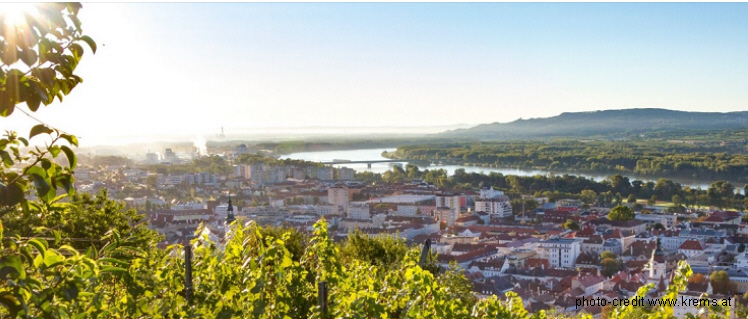
Host City Krems of 44. IAD Conference (6.Febr-9.Febr 2023), Austria: photo credit: Stadt Krems
-
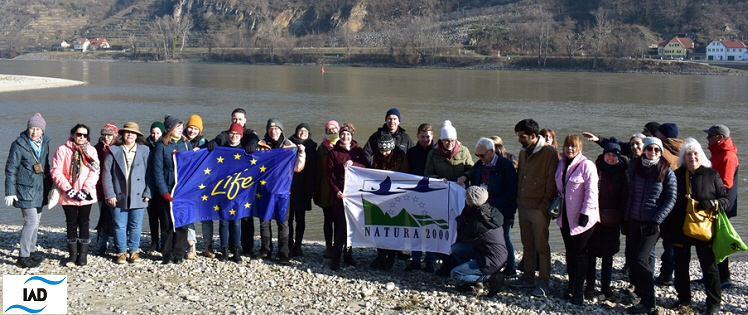
Danube River, 44.IAD Conf Krems (8.2.2023), Wachau, Austria photo credit: Віктор Вишневський (UA)
-
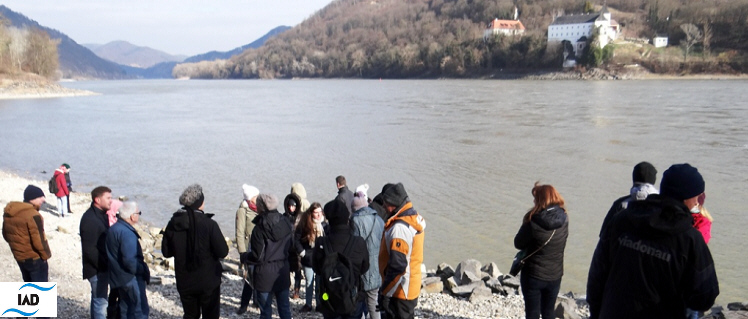
Danube River Excursion, 44.IAD Conf Krems (8.2.2023), Wachau (near Grimsing), Austria photo: K.Teu
-

Danube stretch in winter mood, Romania, 2010 photo credit: Harald Kutzenberger
-
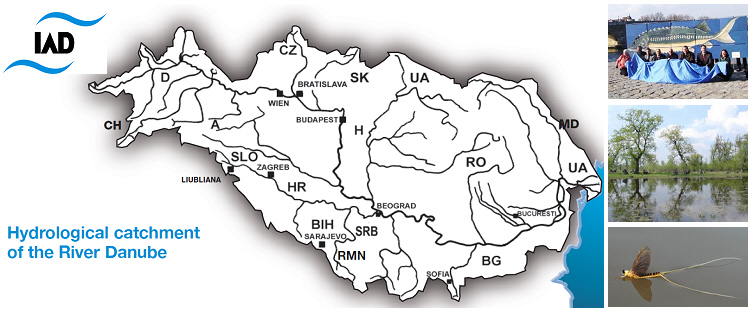
Map of the Danube River Basin and IAD-countries photo credit: several authors
-
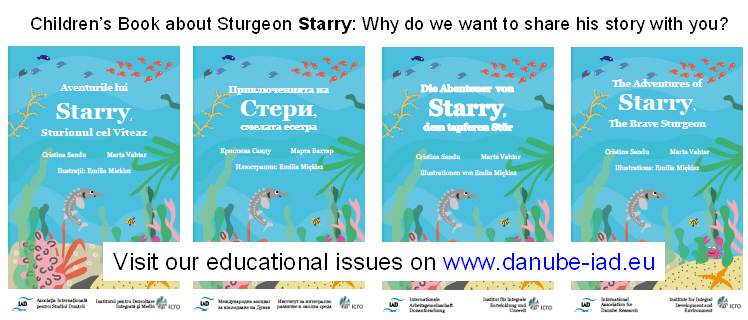
Children's Book by Sandu, Vahtar and Miękisz (2020), English Book & Translations credit: book illustrations
-

Children's Book by Sandu, Vahtar and Miękisz (2020), Multilingual Translations credit: book illustrations
-
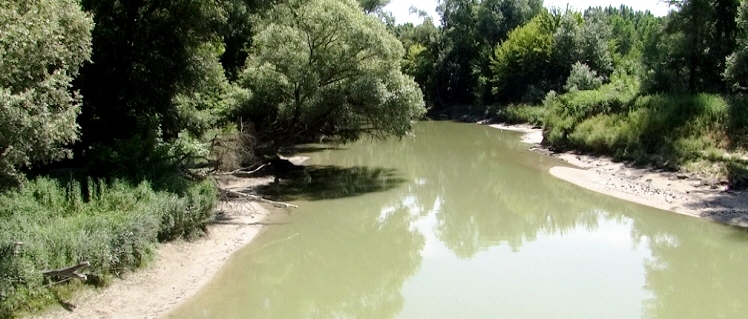
Veľkolélsky island, Danube floodplain, Slovakia, 2022 photo credit: Katrin Teubner
-
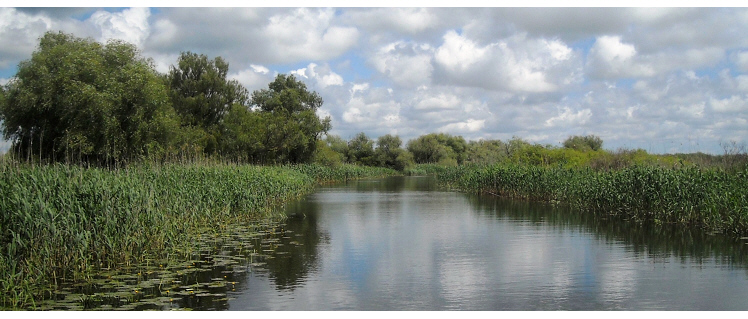
Danube channel, Romania photo credit: Cristina Sandu
-
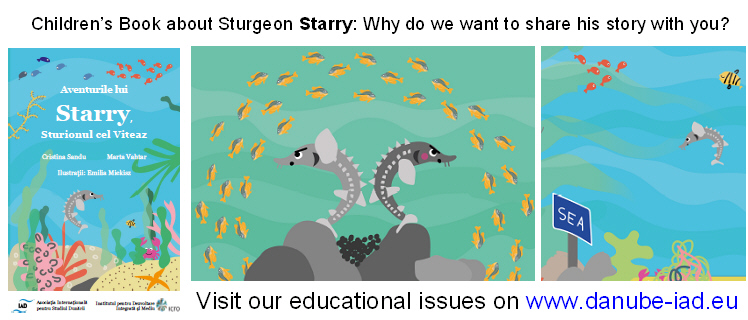
Children's Book by Sandu, Vahtar and Miękisz (2020), Translation into Romanian credit: book illustrations
-
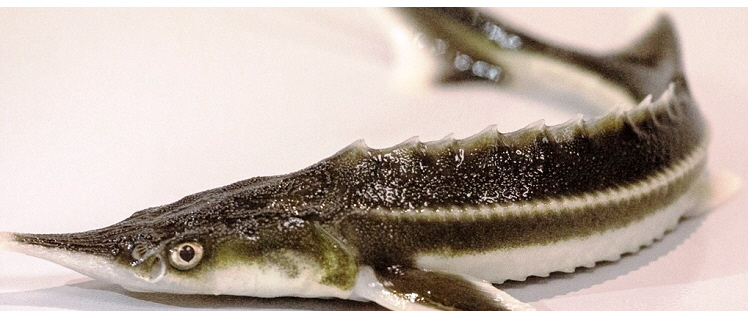
Sturgeon, Romania photo credit: Viorel Gavrila
-
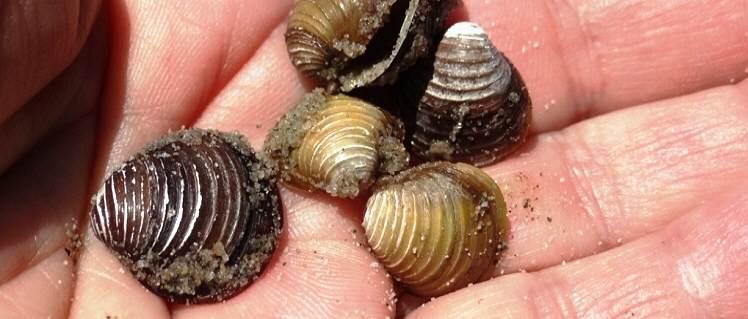
Veľkolélsky island, Corbicula sp., Slovakia. 2022 photo credit: Katrin Teubner
-

Veľkolélsky island, Slovakia, 2022 photo credit: Katrin Teubner
-
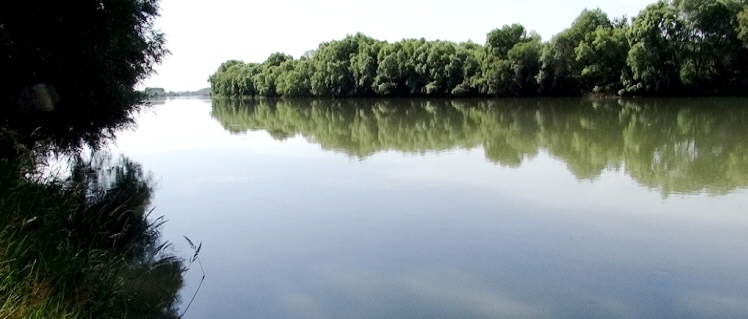
Danube sidearm near Gabčíkovo dam, Slovakia, 2022 photo credit: Katrin Teubner
-
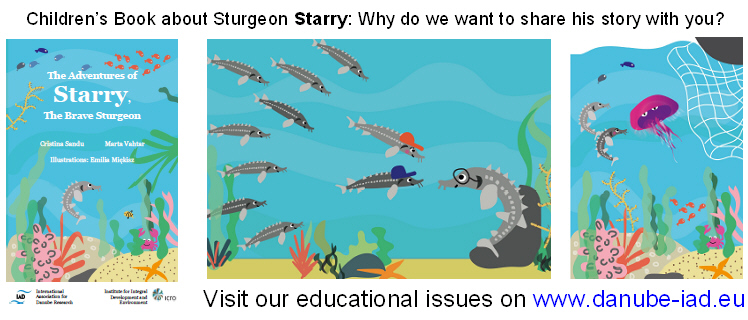
Children's Book by Sandu, Vahtar and Miękisz (2020), English credit: book illustrations
-
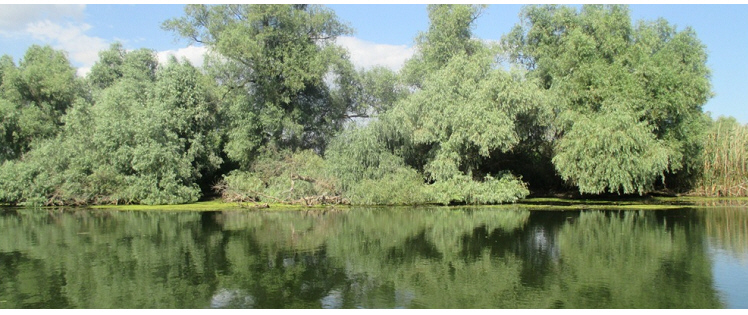
Channel Danube Delta, Romania photo credit: Cristina Sandu
-
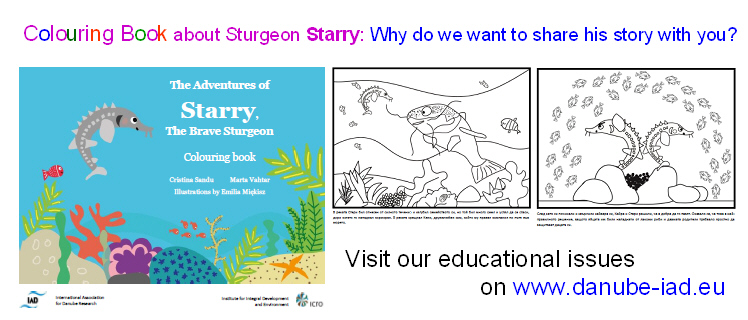
Children's Book by Sandu, Vahtar and Miękisz (2020), Colouring Books credit: book illustrations
-
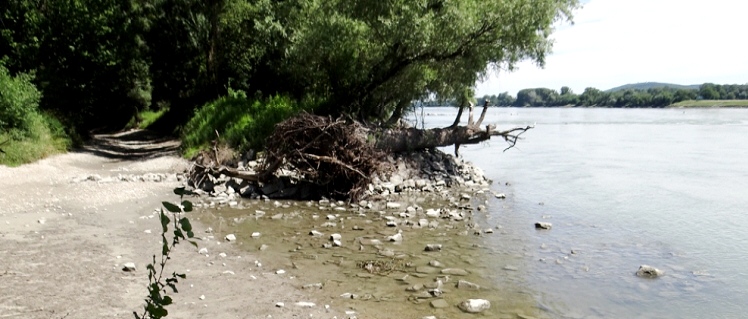
Daube river at Bratislava, Slovakia, 2022photo credit: Katrin Teubner
-
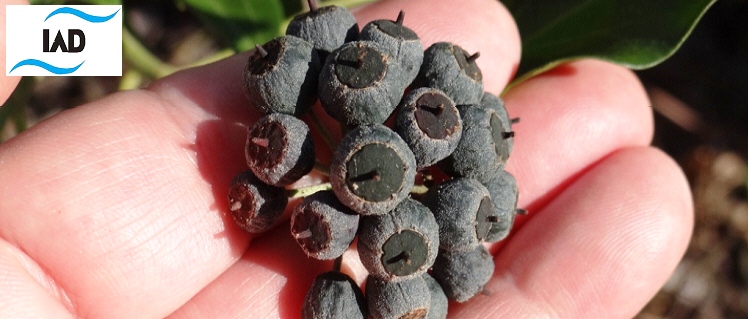
Danube River floodplain forest, Hedera helix, Austria, 2023photo credit: Katrin Teubner
-
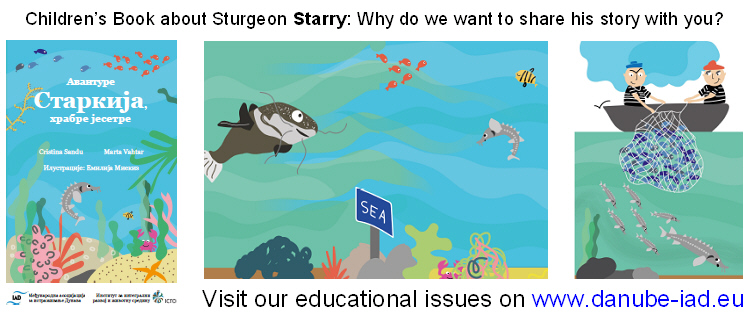
Children's Book by Sandu, Vahtar and Miękisz (2020), Translation into Serbian credit: book illustrations
-
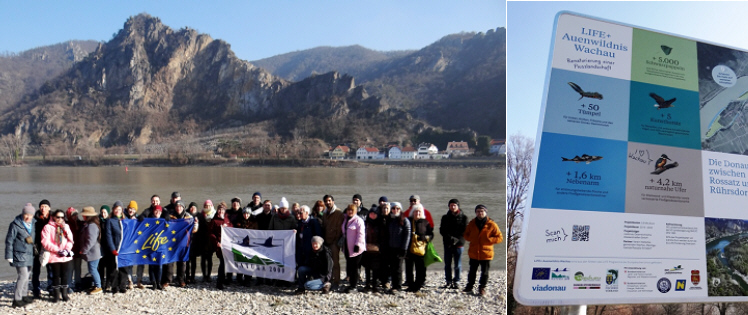
Danube River Excursion, 44.IAD Conf Krems (8.2.2023), Wachau (Rossitz-Rührdorf), Austria photo: K.Teu
-
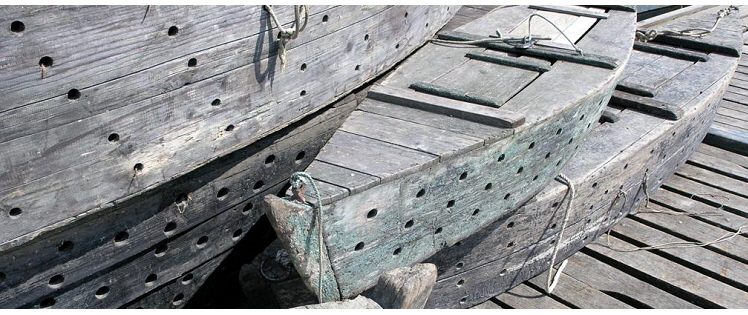
Fish catch boats in Gemenc, Hungary, 2007 photo credit: Katrin Teubner
-
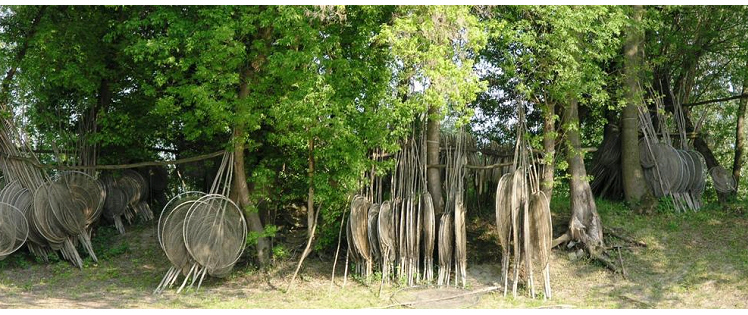
Gemenc fishery, Hungary, 2007 photo credit: Katrin Teubner
-
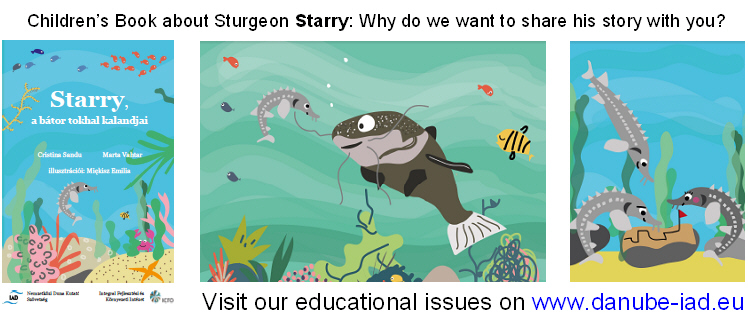
Children's Book by Sandu, Vahtar and Miękisz (2020), Translation into Hungarian credit: book illustrations
-
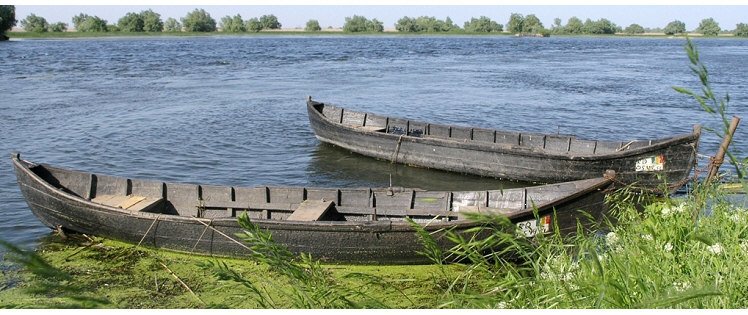
Fisherboats at village Mila, Romania, 2005 photo credit: Katrin Teubner
-
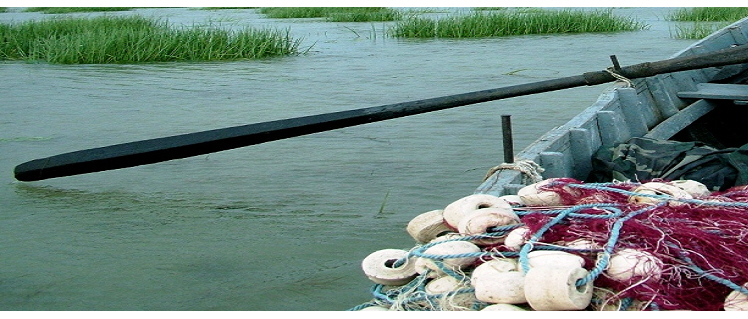
Fisherboat, Romania, 2005 photo credit: Nicolae S.P.
-
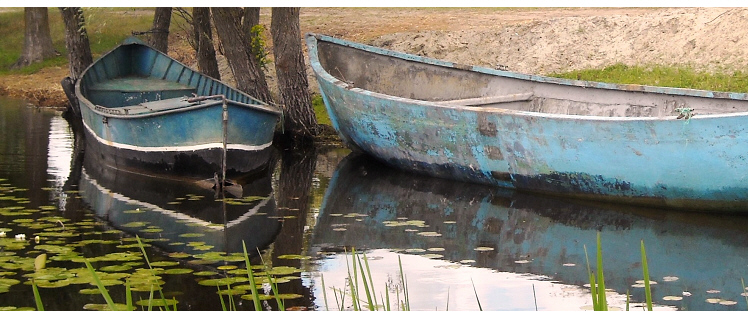
Fishermen boat, Romania photo credit: Cristina Sandu
-
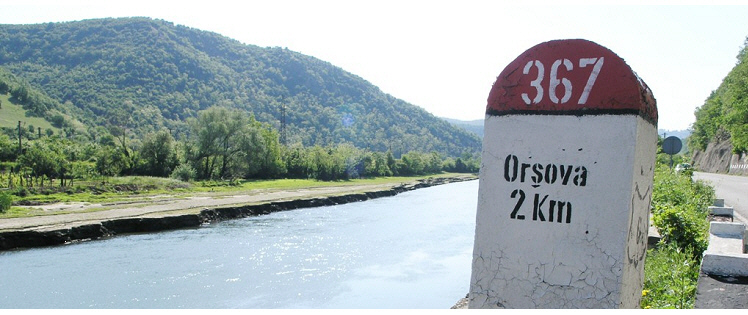
Danube stretch in Orsova, Romania, 2005 photo credit: Katrin Teubner
-

Hydromorphological assessment for Danube tributaries: Drava and Mura photo credit: Ulrich Schwarz
-
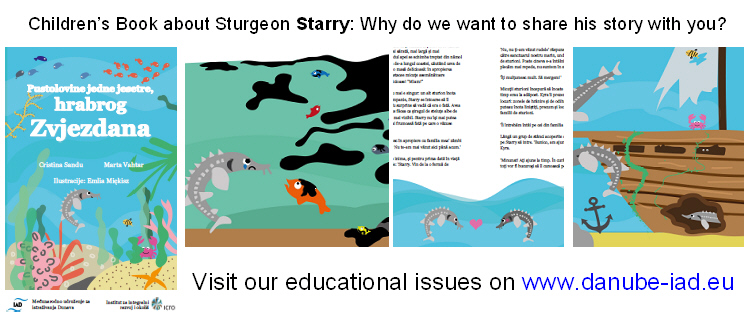
Children's Book by Sandu, Vahtar and Miękisz (2020), Translation into Croatian credit: book illustrations
-
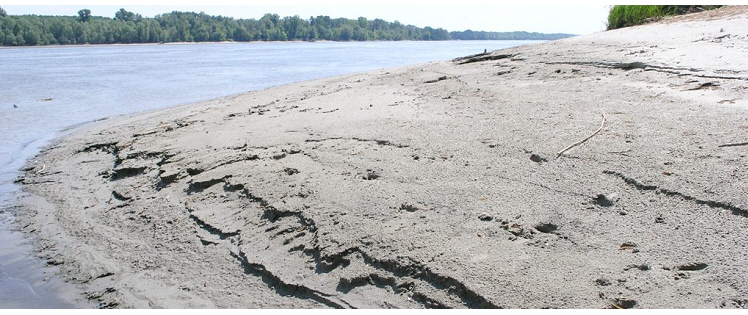
Danube stretch in Gemenc, Hungary, 2007 photo credit: Katrin Teubner
-
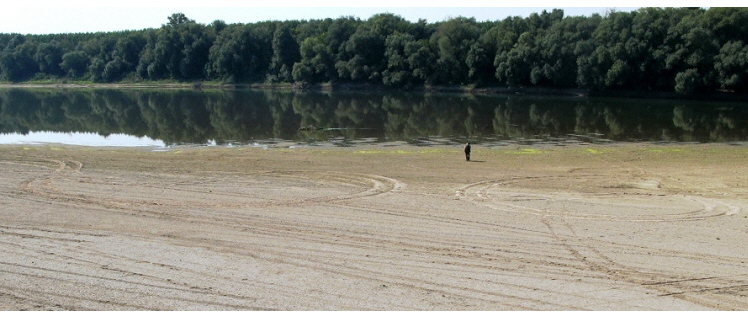
Danube side channel, Romania, 2005 photo credit: Nicolae S.P.
-
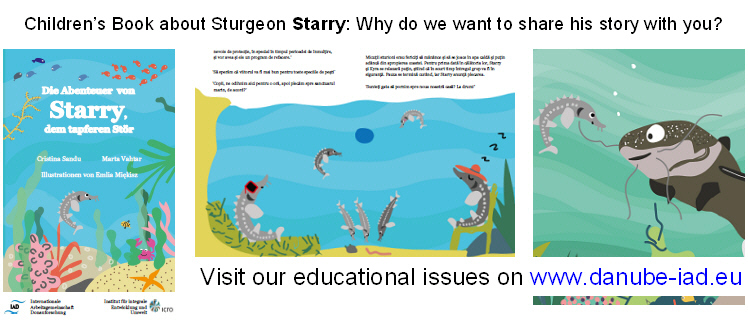
Children's Book by Sandu, Vahtar and Miękisz (2020), Translation into German credit: book illustrations
-
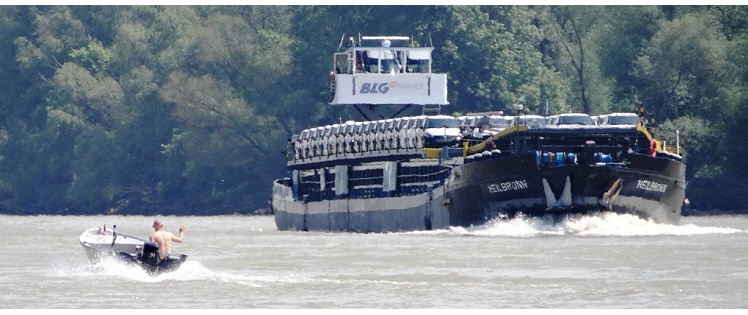
Danube Schönau, Austria, 2013 photo credit: Katrin Teubner
-
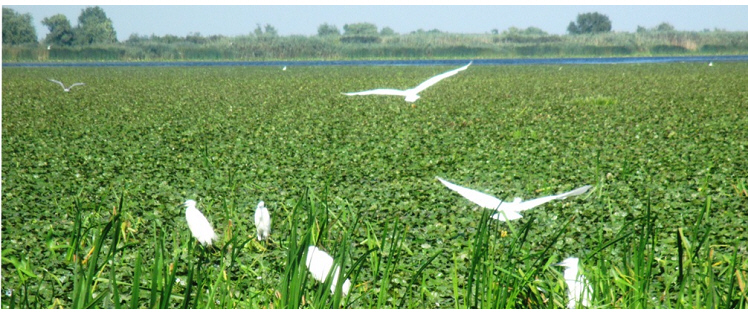
Egrets at Channel Danube Delta, Romania, 2016 photo credit: Cristina Sandu
-
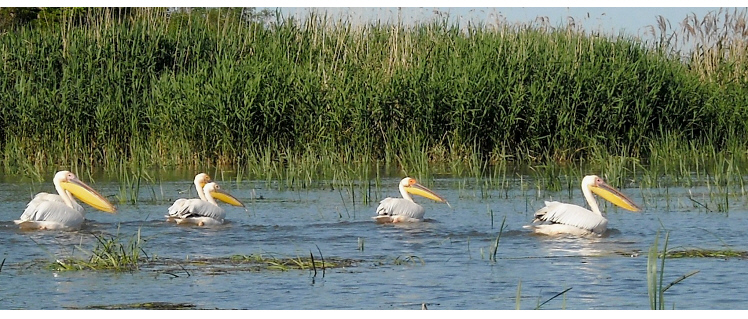
Danube Delta, pelicans, Romania photo credit: Cristina Sandu
-
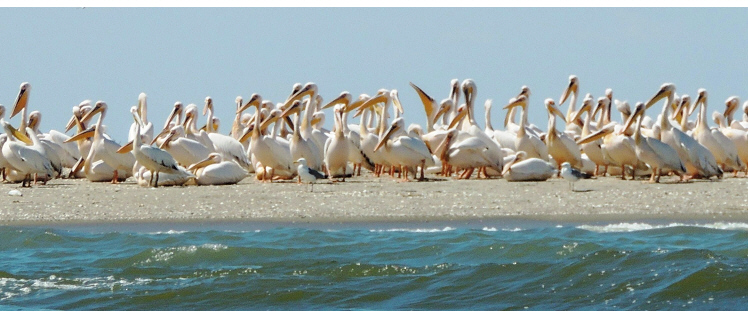
Danube Delta, pelican colony, Romania photo credit: Cristina Sandu
-
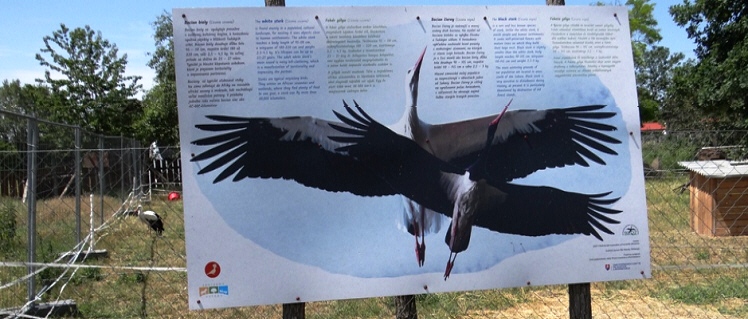
Veľkolélsky island, Slovakia, 2022photo credit: Katrin Teubner
-
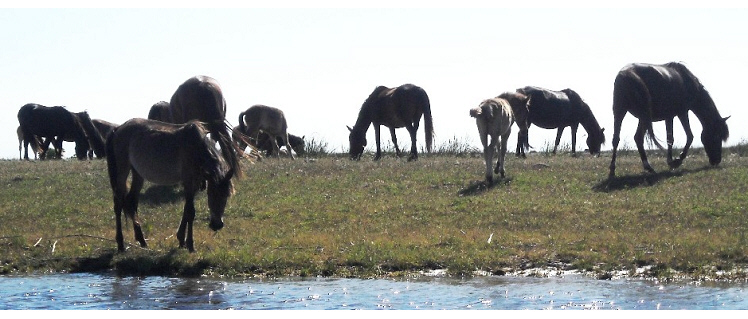
Horses in the Danube Delta, Romania photo credit: Cristina Sandu
-
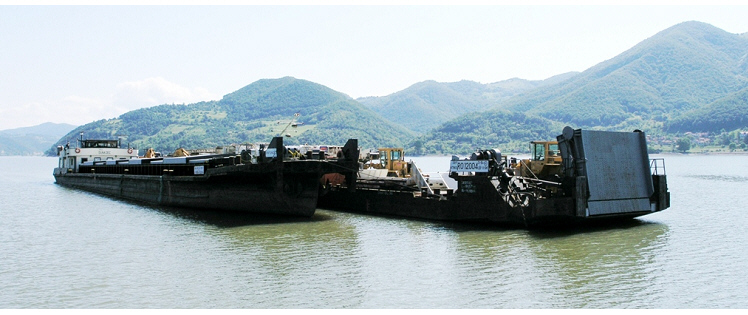
Danube, Romania, 2005 photo credit: Katrin Teubner
-
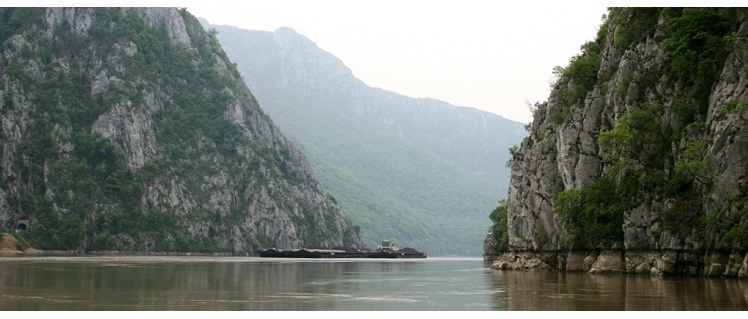
Danube, Romania photo credit: Nicolae Găldean
-
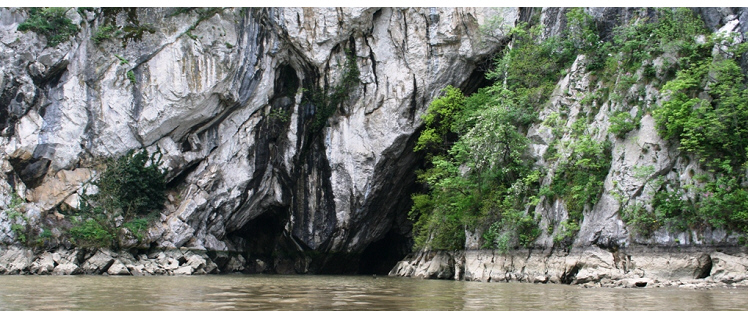
Danube, Romania photo credit: Nicolae Găldean
-
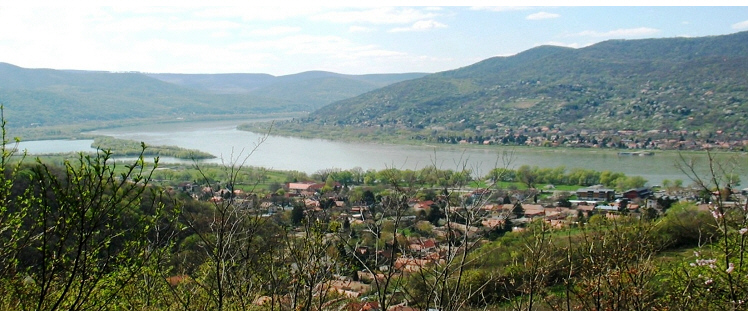
Danube at Visegrád, Hungary, 2019 photo credit: Mária Dinka
-
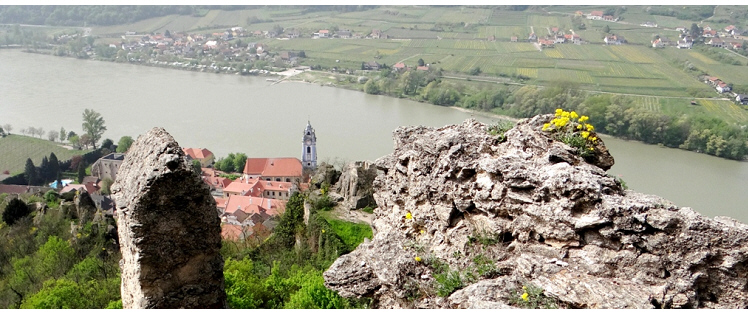
Danube stretch at town Dürnstein, Austria, 2013 photo credit: Katrin Teubner
-
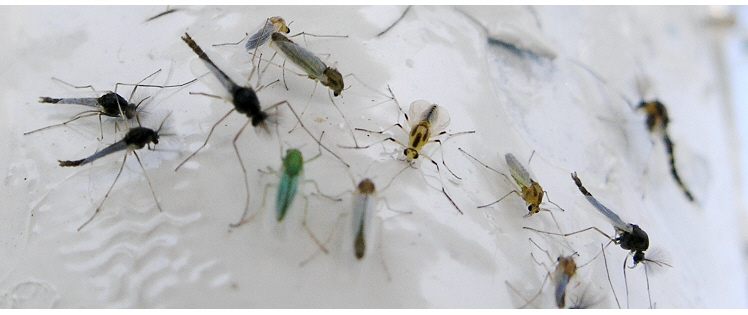
Danube Delta, Chironomidae at Lake Puiu, Romania, 2005 photo credit: Katrin Teubner
-
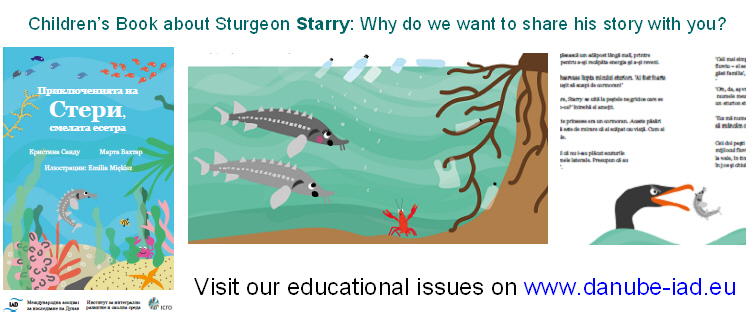
Children's Book by Sandu, Vahtar and Miękisz (2020), Translation into Bulgarian credit: book illustrations
-
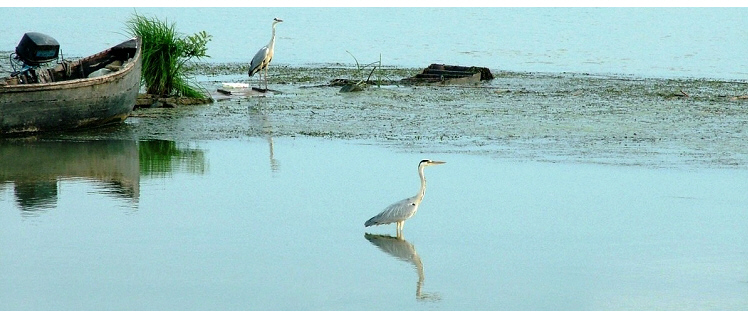
Danube Delta, Grey Herons, Romania, 2005 photo credit: Nicolae S.P.
-
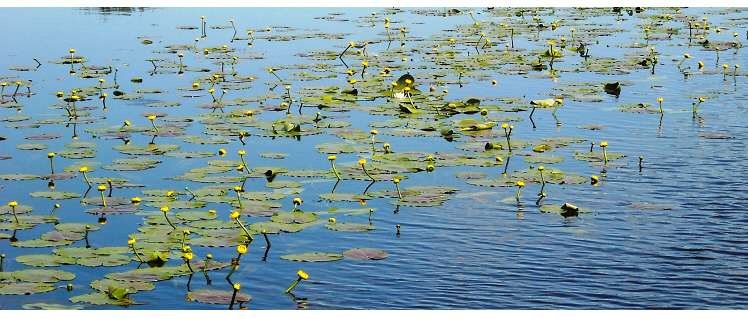
Danube Delta, Yellow Water Lily, Romania photo credit: Cristina Sandu
-

Danube Delta, stork nest, Romania photo credit: Cristina Sandu
-
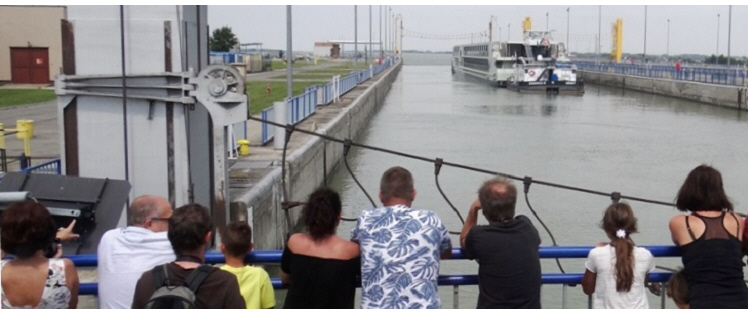
Hydroelectric power plant Gabčíkovo, Slovakia, 2018 photo credit: Katrin Teubner
-
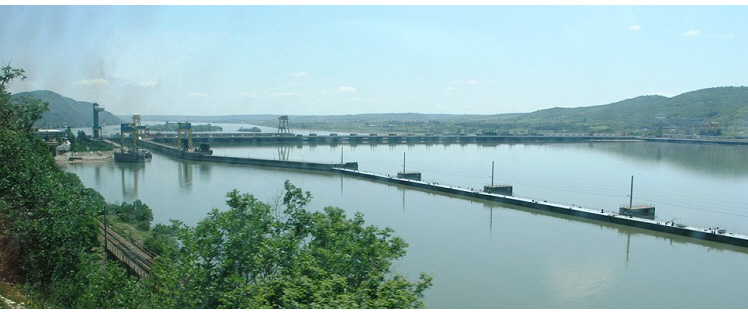
Iron Gates hydroelectric power plant, Romania, 2005 photo credit: Katrin Teubner
-
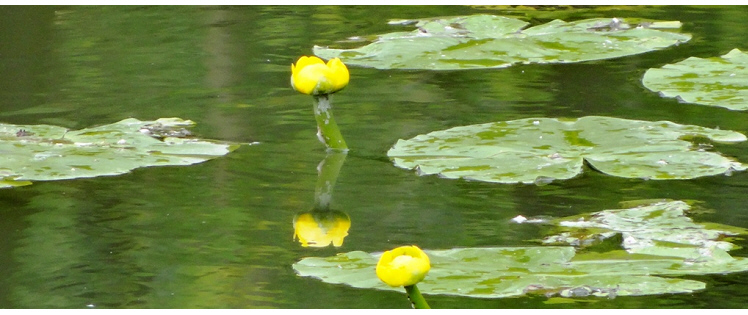
Macrophytes in the Danube Delta, Yellow Water Lily, Romania, 2005 photo credit: Katrin Teubner
-
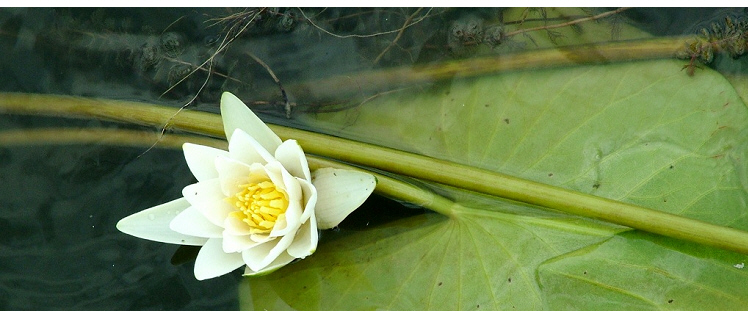
Channel Danube Delta, White Water Lily, Nymphaea alba, Romania, 2005 photo credit: Nicolae Ş.P.
-
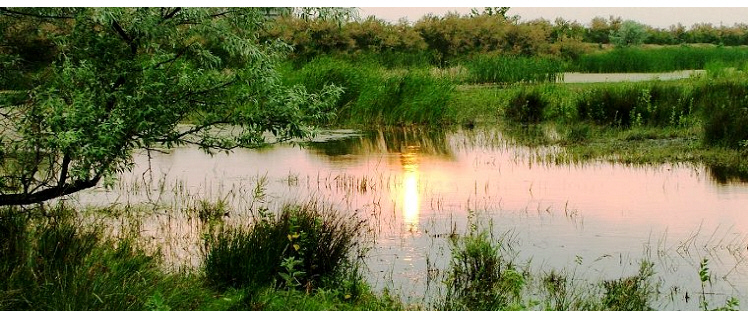
Floodplain Danube Delta, 2005 photo credit: Nicolae Ş.P.
-
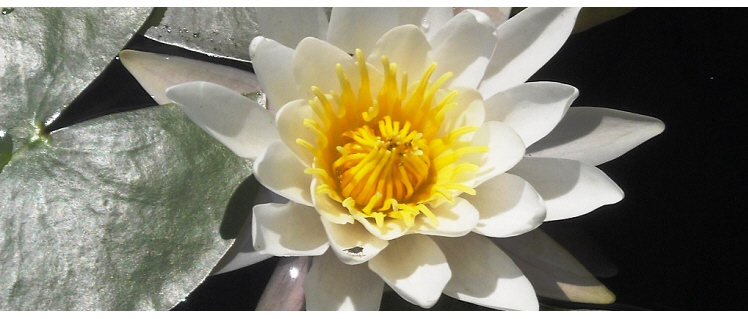
Danube Delta, White Water Lily, Nymphaea alba, Romania photo credit: Cristina Sandu
-
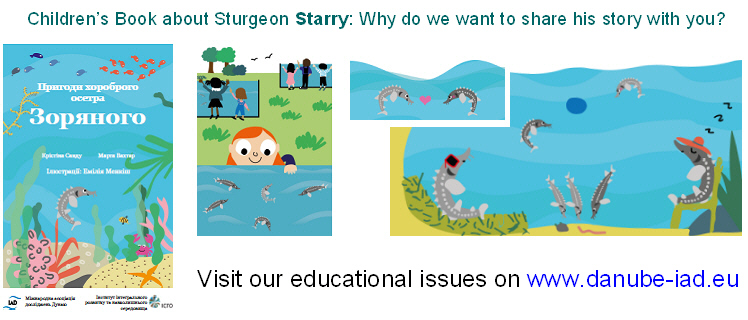
Children's Book by Sandu, Vahtar and Miękisz (2020), Translation into Ukrainian credit: book illustrations
-
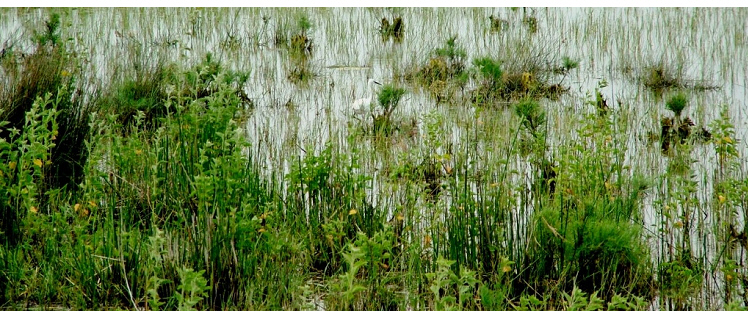
Floodplain Danube Delta, egrets, 2005 photo credit: Nicolae Ş.P.
-
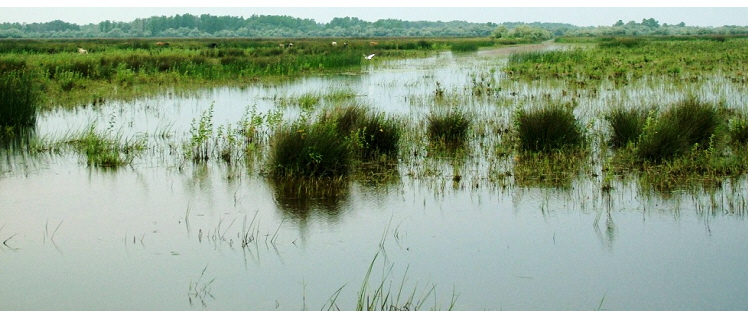
Floodplain Danube Delta, egrets, 2005 photo credit: Nicolae Ş.P.
-
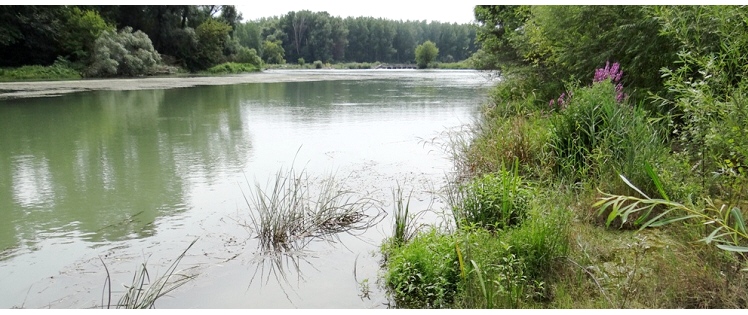
Floodplain near Gabčíkovo, Slovakia, 2018 photo credit: Katrin Teubner
-
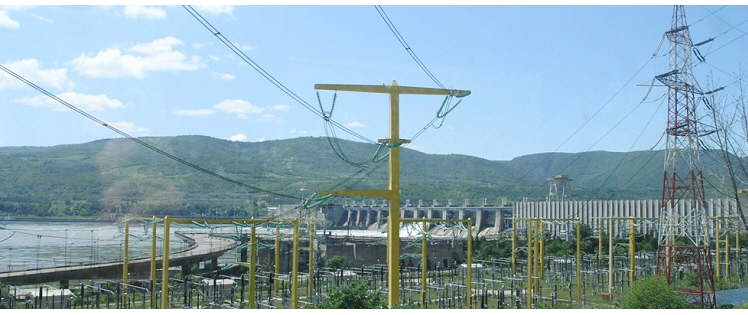
Iron Gates hydroelectric power plant, Romania, 2005 photo credit: Katrin Teubner
-
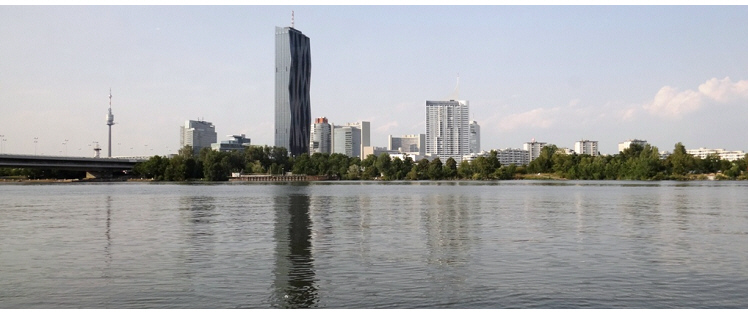
Alte Donau, Vienna, Austria, 2018 photo credit: Katrin Teubner
-
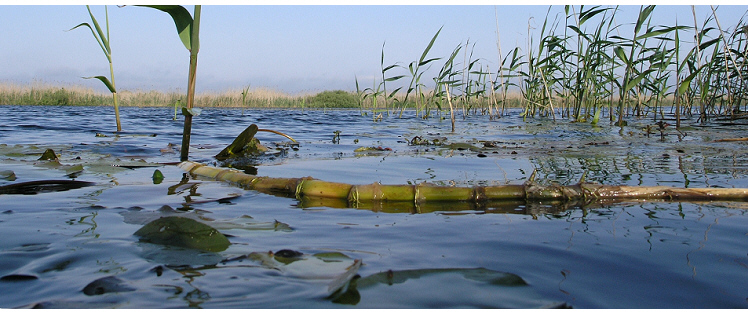
Phragmites australis in the Danube Delta, Romania, 2005 photo credit: Katrin Teubner
-
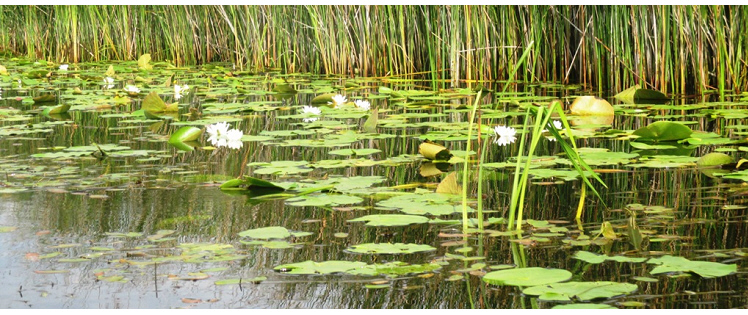
Channel Danube Delta, Romania, 2016 photo credit: Cristina Sandu
-
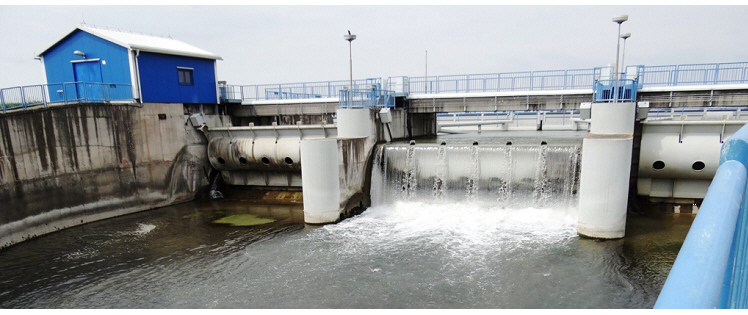
Floodplain at Gabčíkovo, Slovakia, 2018 photo credit: Katrin Teubner
-
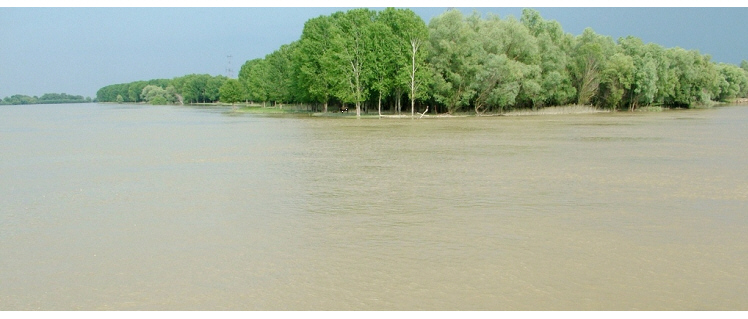
Danube, Romania, 2005 photo credit: Nicolae S.P.
-
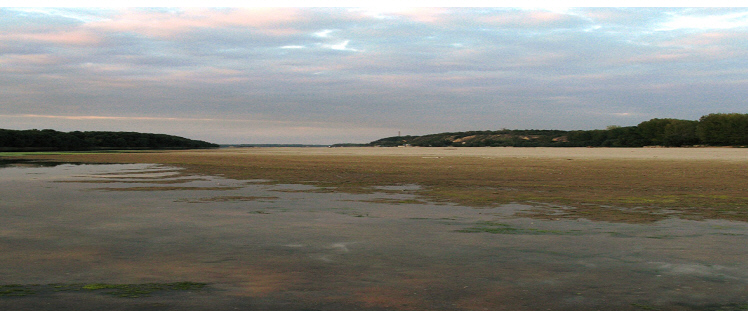
Danube, during low water level, Romania, 2005 photo credit: Nicolae S.P.
-
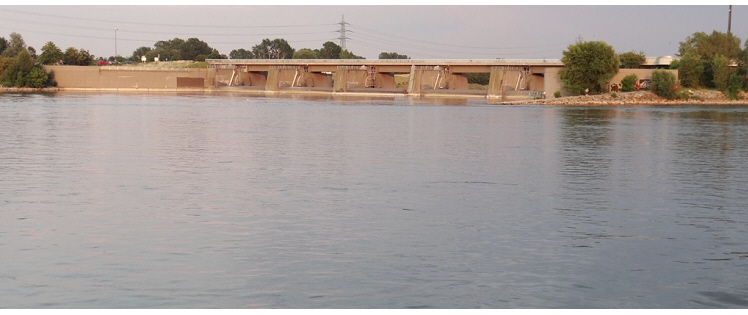
Hydroelectric power plant Grafenwoerth, Vienna, Austria, 2018 photo credit: Katrin Teubner
-
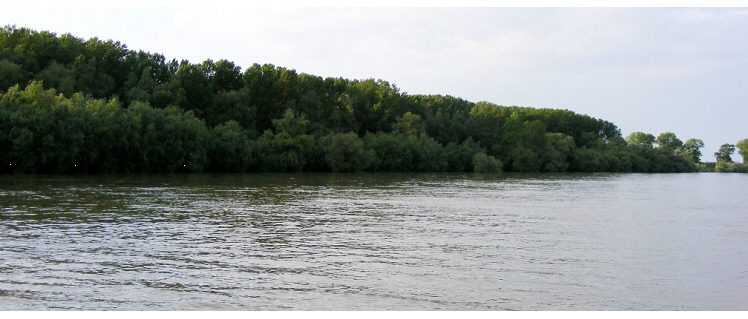
Danube, Romania photo credit: Nicolae Găldean
-
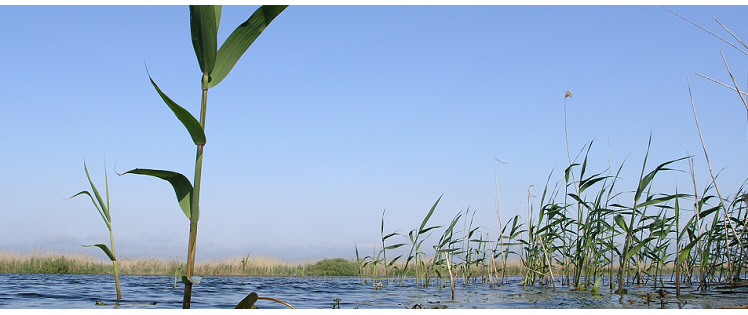
Phragmites australis in the Danube Delta, Romania, 2005 photo credit: Katrin Teubner
-
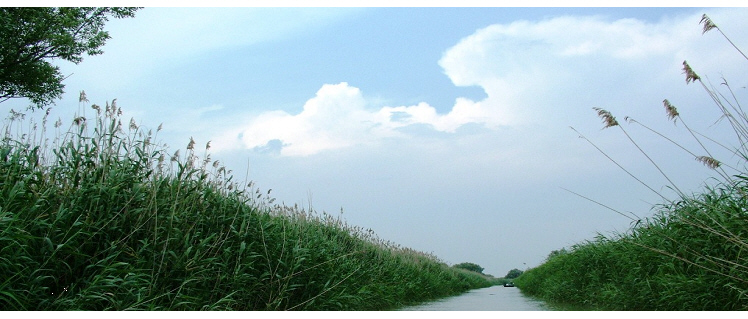
Channel Danube Delta, Romania, 2005 photo credit: Nicolae S.P.
LTSER and Environmental History
Long-term socio-ecological research and Environmental History
Co-ordinators: Dr. Gertrud HAIDVOGL and Assoc.-Prof. Dr. Martin SCHMID
Overview
The Danube riverine landscapes have been the site of human interventions into land-cover and hydrology, challenging societies along its banks for millennia. The Danube river basin exhibits a plethora of environmental problems, many of which are likely to be exacerbated by global climate change and other driving factors, both in the bio- as well as in the anthroposphere. None of these problems can be addressed without knowledge about human impacts on the river and the river’s impact on humans over time.
This IAD-expert group links existing research and aims to break new ground towards integrated, interdisciplinary long-term socio-ecological research and environmental histories of the Danube from prehistory to the present. In such environmental histories, social and natural dynamics are of equal importance, because the main focus is their interaction. This requires the cooperation of several disciplines. The core interest of this group’s interdisciplinary efforts is the comparative study of long-term socio-ecological developments in the Danube river basin.
Long-term socio-ecological research, LTSER, was developed from long-term ecological research, taking into account that the study of landscapes and sites where human intervention has taken place and continues to take place is important for planning a sustainable future. Since the field of environmental history developed its own contours in the 1970s, pollution, environmentalism, climate, resource use and abuse and its environmental effects, the study of conservation history and, more recently, the environmental effects of war and the human body in polluted environments have been studied. An environmental history of the Danube River Basin necessarily has to combine many of these themes, taking the diversity of environments, societies and cultures along the river into account.
LTSER and environmental history, with their ability to integrate natural sciences and humanities, that is, to integrate research on the impact of human interventions with that on the reasons for such interventions, is ideally suited to provide the community of Danube researchers with long-term case studies which allow management decisions to be based on the firm ground of historical knowledge.
Core publications:
- Dealing with fluvial dynamics: A long-term, interdisciplinary study of Vienna and the Danube. Special Issue of the Journal Water History, Volume 5, Issue 2, July 2013. Open Access: http://link.springer.com/journal/12685/5/2/page/1
- Winiwarter V., M. Schmid, S. Hohensinner & G. Haidvogl (2013): The Environmental History of the Danube River Basin as an Issue of Long-Term Socio-Ecological Research. In: Singh S.J., H. Haberl, M. Chertow, M. Schmid & M. Mirtl (eds.): Long-Term Socio-Ecological Research. Studies in society - nature interactions across spatial and temporal scales (= Human - Environment Interactions, series edited by Emilio Moran, Volume 1), Springer, Dordrecht, pp. 103-122.
- Haidvogl, G., Lajus, D., Pont, D., Schmid, M., Jungwirth, M., Lajus, J.: Reconstructing historical changes of riverine fish: A classification of written sources based on examples of the Austrian Danube and North-Russian Rivers. Ecology of Freshwater Fish 2013. doi: 10.1111/eff.12103 (online first). Download: http://onlinelibrary.wiley.com/doi/10.1111/eff.12103/full
- Schmid, M.: Towards an Environmental History of the Danube: Understanding a great European river through its transformation as a socio-natural site, c. 1500-2000. Habilitation Thesis in Environmental History, Alpen-Adria Universität Klagenfurt, Graz, Vienna. September 2013. 476 pages.
Current core activities:
- Danube:Future: A sustainable future for the Danube River Basin as a challenge for the interdisciplinary humanities. Project of the Priority Area 7 of the EU Strategy for the Danube Region. See: http://www.danubefuture.eu
- URBWATER Vienna’s Urban Waterscape 1683-1918. An Environmental History. Project funded by FWF, the Austrian Science Fund. See: http://www.umweltgeschichte.aau.at/index,7096,URBWATER.html
- DEHI: Danube Environmental History Initiative. See: http://www.umweltgeschichte.aau.at/index,3184,DEHI.html?value=en
